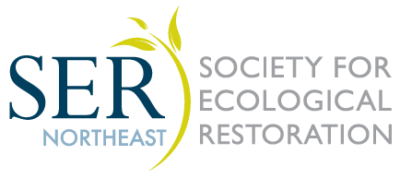Ecosystems, Adaptation, Infrastructure and Resiliency
Field Trips and Workshops on Saturday, October 15
Workshop: Principles of Ecological Restoration and Their Application
Workshop leader: Andre Clewell, PhD
This workshop, provided by  one of our plenary speakers, reviews the principles of ecological restoration and thoroughly illustrates them with case histories. The workshop emphasizes the importance of reestablishing historic ecological trajectories and biodiversity as we restore, not just recover the nostalgic past or improve natural services. This viewpoint recognizes that ecosystems adapt and evolve in response to environmental modification, such as climate change and sea level rise.
one of our plenary speakers, reviews the principles of ecological restoration and thoroughly illustrates them with case histories. The workshop emphasizes the importance of reestablishing historic ecological trajectories and biodiversity as we restore, not just recover the nostalgic past or improve natural services. This viewpoint recognizes that ecosystems adapt and evolve in response to environmental modification, such as climate change and sea level rise.
To see the Workshop Syllabus, click HERE
Field Trip #1: Urban Watershed Restoration and Low Impact Development — Berry Brook Restoration Project
Trip leader: Tom Ballestero, PhD, UNH Stormwater Center
The UNH Stormwater Center initiated a watershed-wide project using innovative BMPs and retrofit opportunities to reduce stormwater runoff from impervious surfaces. In addition, the brook was daylighted and restored with a geomorphic design. Verification of success is measured through water quality and runoff volume monitoring and pollutant load reduction modeling.
Field Trip #2: Coastal Resiliency: Salt Marsh Restoration and Living Shorelines
Fringing Salt Marsh Creation and Shoreline Restoration in the 21st Century
Trip leaders: David M. Burdick, PhD, and Trevor Mattera, UNH College of Life Sciences & Agriculture
Anyone who owns or manages shorefront property knows that sea level is rising and the rate in which it is rising is becoming more rapid, leading to concerns over erosion as well as solutions, many of which destroy critical habitat. This field trip will examine a variety of coastal restoration projects in the Durham and Portsmouth region. This trip will focus on living shorelines, salt marsh restoration, invasive species control, how tidal marshes respond to climate change, and how to monitor the success of restorations. Note that this trip requires an early morning start, based on the tides.
CANCELED – Field Trip #3: Restoring Natural Dunes and Protecting People — Community Based Dune Restoration in Hampton and Seabrook, NH
Trip leader: Alyson Eberhardt, NH Sea Grant and UNH Cooperative Extension
This field trip will showcase an innovative dune revegetation program which involves community volunteers and engages stakeholders to restore the dunes of the Hampton-Seabrook Estuary watershed in order to build coastal resilience, protect communities and maintain ecological function. Participants will visit restoration sites as well as A Common Garden of native dune species at Hampton Beach State Park that provides a source of plants for the restoration efforts and coastal landowners.
Field Trip #4: Restoring Instream Habitat and Improving Floodplain Resiliency Using Large Wood
Trip leaders: Joel DeStasio and Colin Lawson, Trout Unlimited
Beginning in 2014, Trout Unlimited has been working with the USDA Natural Resource Conservation Commission (NRCS) to monitor and restore instream fish habitat at 23 NRCS Wetlands Reserve Program (WRP) conservation easements in southern New Hampshire. The goal of these restorations is to reintroduce large wood into sections of stream where the natural recruitment of large instream wood becomes limited. Additionally, large wood re-engages floodplain processes whereby improving flood resiliency. Our restoration projects aim to improve instream habitat & structure for fish and also influence spawning potential by improving sediment transport, pool/riffle runs, and stream cover.
Logistics
Field trips – Each field trip is limited to 11 participants. Travel will be provided from UNH to the tour site and back by van, and personal vehicles are discouraged. Field trips #1, #3, & #4 are scheduled from 9 am – 2 pm. Field trip #2 will require an early morning start time based on tides.
Box lunches will be provided, with vegetarian and vegan options available. Attendees with other dietary requirements or restrictions are requested to plan accordingly.
Workshop – The workshop will be held indoors from 9am-2pm. Box lunches will be provided, with vegetarian and vegan options available. Attendees with other dietary requirements or restrictions are requested to plan accordingly.
